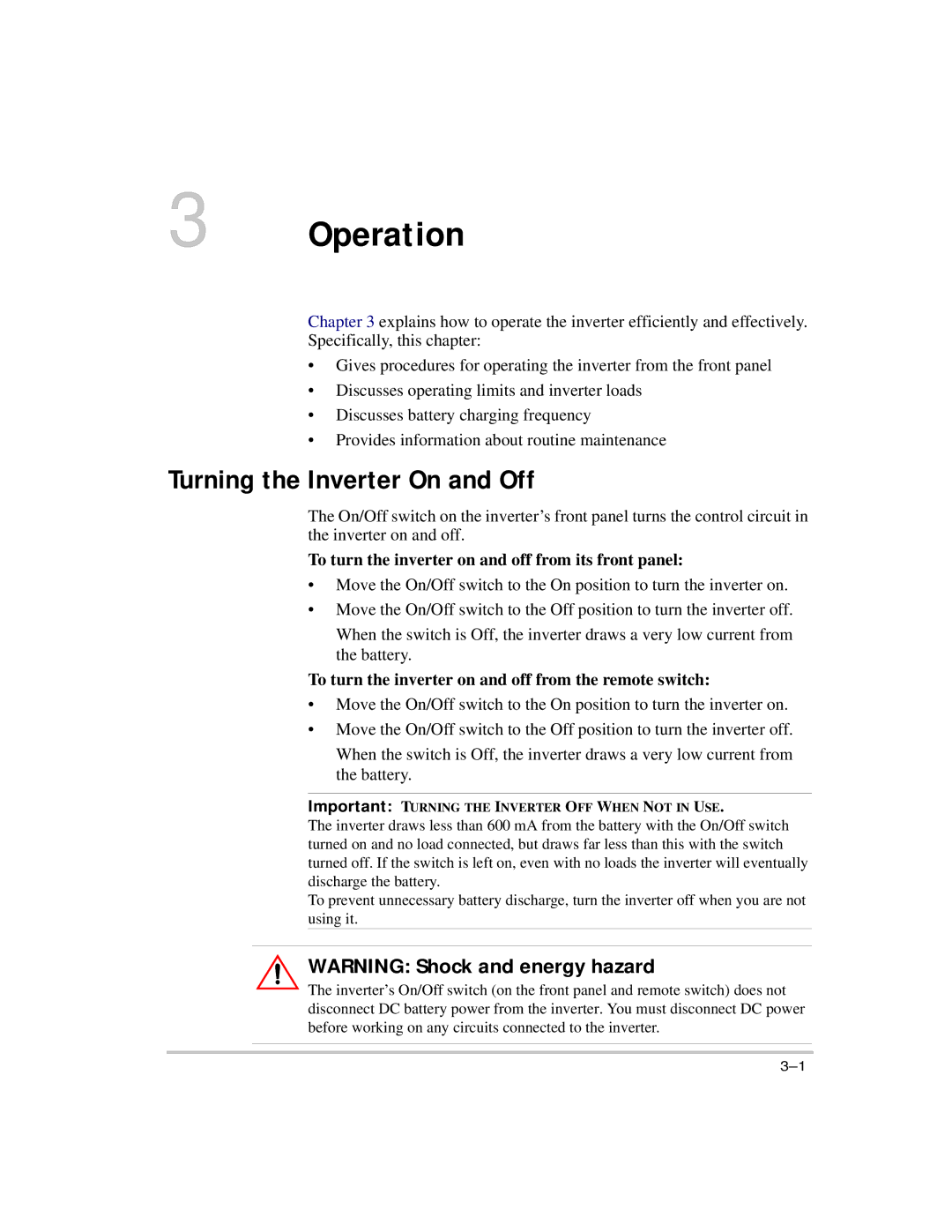
3 Operation
Chapter 3 explains how to operate the inverter efficiently and effectively. Specifically, this chapter:
•Gives procedures for operating the inverter from the front panel
•Discusses operating limits and inverter loads
•Discusses battery charging frequency
•Provides information about routine maintenance
Turning the Inverter On and Off
The On/Off switch on the inverter’s front panel turns the control circuit in the inverter on and off.
To turn the inverter on and off from its front panel:
•Move the On/Off switch to the On position to turn the inverter on.
•Move the On/Off switch to the Off position to turn the inverter off.
When the switch is Off, the inverter draws a very low current from the battery.
To turn the inverter on and off from the remote switch:
•Move the On/Off switch to the On position to turn the inverter on.
•Move the On/Off switch to the Off position to turn the inverter off.
When the switch is Off, the inverter draws a very low current from the battery.
Important: TURNING THE INVERTER OFF WHEN NOT IN USE.
The inverter draws less than 600 mA from the battery with the On/Off switch turned on and no load connected, but draws far less than this with the switch turned off. If the switch is left on, even with no loads the inverter will eventually discharge the battery.
To prevent unnecessary battery discharge, turn the inverter off when you are not using it.
WARNING: Shock and energy hazard
The inverter’s On/Off switch (on the front panel and remote switch) does not disconnect DC battery power from the inverter. You must disconnect DC power before working on any circuits connected to the inverter.
